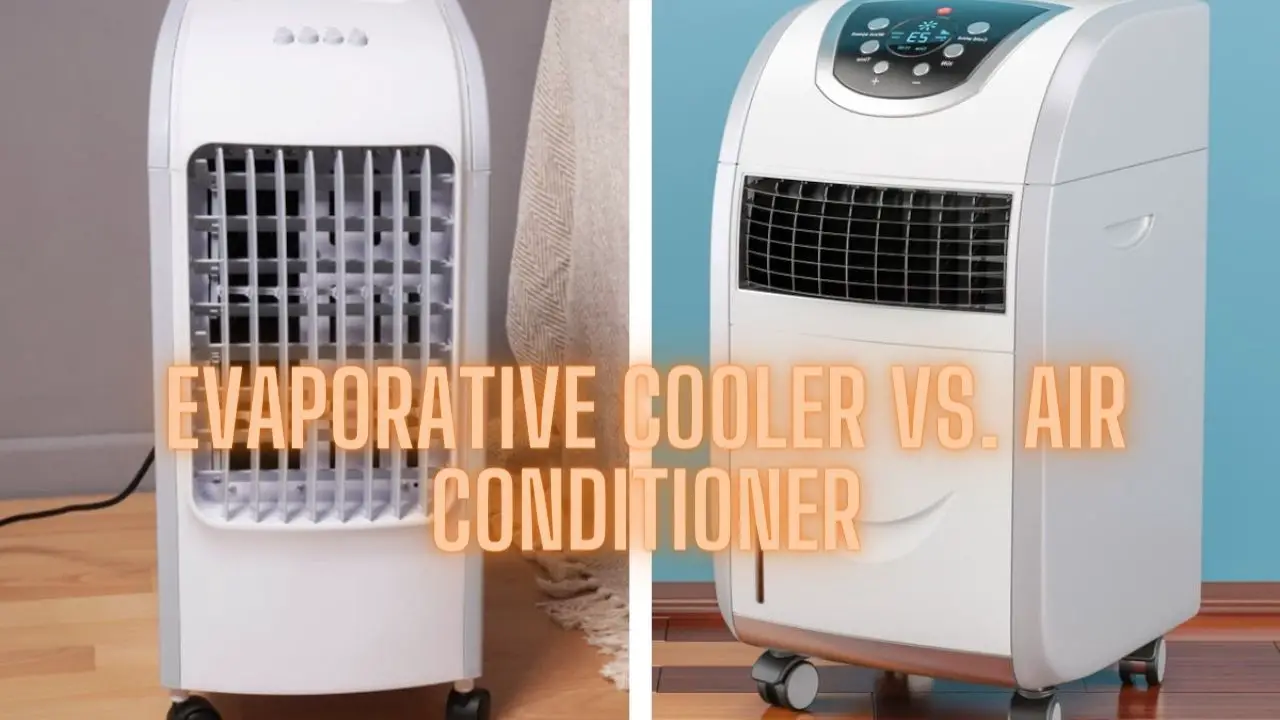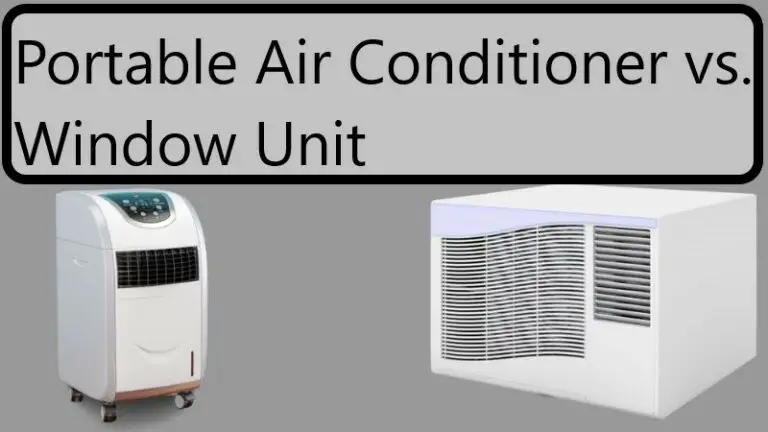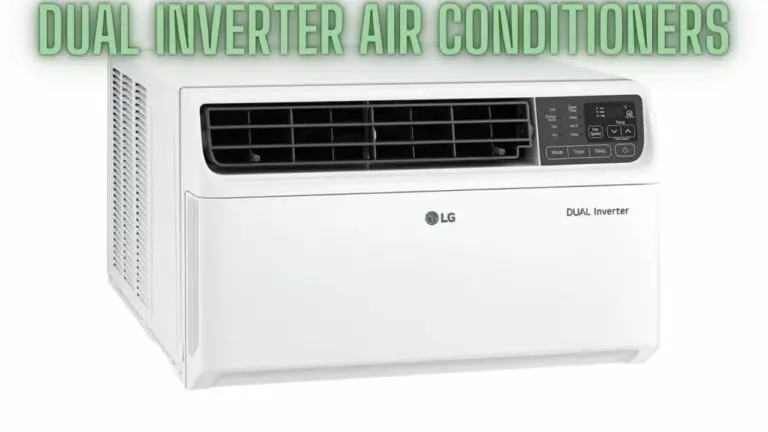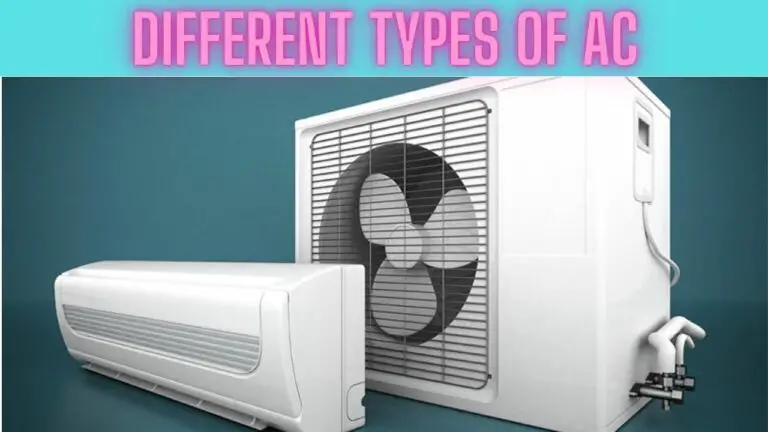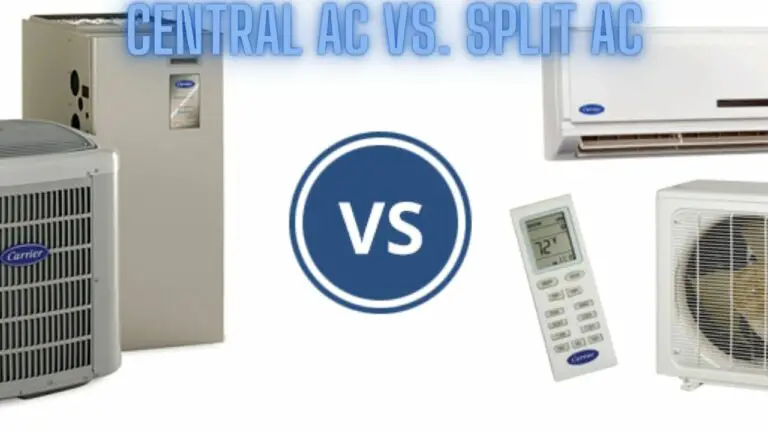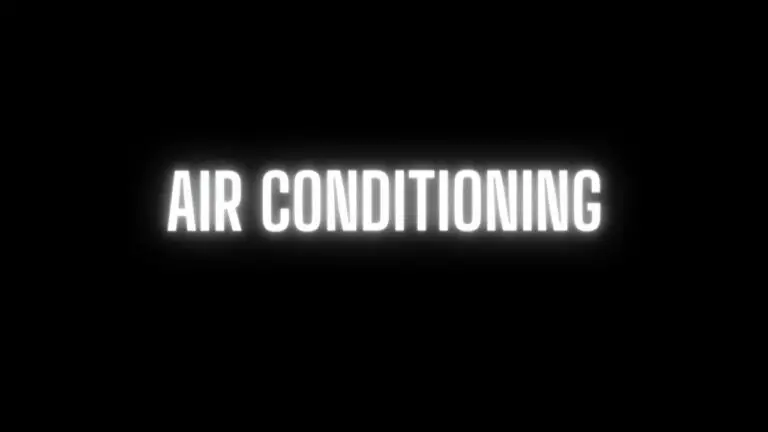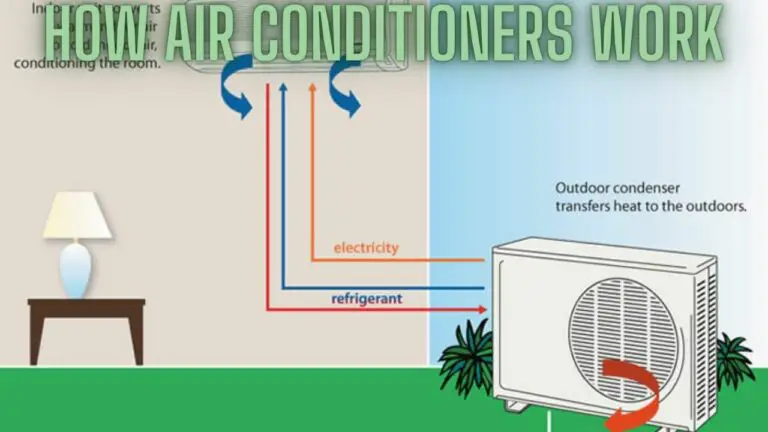Evaporative Cooler vs. Air Conditioner: Making Informed Cooling Choices
Introduction
When the scorching heat of summer arrives, keeping your living space comfortable is a top priority. Two common methods for achieving this are evaporative coolers (also known as swamp coolers) and traditional air conditioners. In this article, we will compare evaporative coolers and air conditioners, examining their differences, advantages, and drawbacks to help you make an informed choice for your cooling needs.
Evaporative Cooler
- How It Works: Evaporative coolers operate on a simple and energy-efficient principle. They draw in warm air through water-saturated pads or filters. As the air passes through these wet media, it loses heat through evaporation, resulting in cooler, moistened air that is then circulated into your living space.
- Energy Efficiency: Evaporative coolers are highly energy-efficient and consume significantly less electricity than traditional air conditioners. They use water as the primary cooling agent, which is less expensive than refrigerants.
- Environmental Impact: Evaporative coolers have a lower carbon footprint because they use less electricity and do not rely on ozone-depleting refrigerants.
- Humidification: Evaporative coolers add moisture to the air, which can be beneficial in dry climates or during hot, dry seasons.
- Ideal Climate: They work best in hot, arid regions with low humidity levels. In areas with high humidity, their cooling efficiency decreases.
- Air Quality: Evaporative coolers increase indoor humidity levels, which can be refreshing but may not be suitable for individuals with respiratory conditions. Proper maintenance is essential to prevent mold and bacterial growth in the cooling media.
Air Conditioner
- How It Works: Air conditioners use a refrigeration cycle to remove heat from indoor air. They cool the air by cycling it through a closed loop of refrigerant that absorbs heat from inside and releases it outside.
- Energy Efficiency: Air conditioners tend to be less energy-efficient than evaporative coolers, especially when running at full capacity. However, modern models have improved efficiency ratings.
- Environmental Impact: They typically use refrigerants that can harm the environment if they leak, but newer units use more eco-friendly refrigerants.
- Humidification: Air conditioners tend to dehumidify the air, which can be beneficial in humid climates but may require additional humidification in dry environments.
- Ideal Climate: Air conditioners work effectively in various climates, making them suitable for most geographic locations.
- Air Quality: Air conditioners can filter and dehumidify indoor air, potentially improving air quality. However, they do not add moisture to the air.
Choosing Between Evaporative Coolers and Air Conditioners
- Climate: Your location and local climate play a crucial role. Evaporative coolers are excellent for arid regions, while air conditioners are versatile and work well in both dry and humid environments.
- Energy Efficiency: Consider your energy budget. Evaporative coolers are more energy-efficient and cost-effective to run, making them a better choice for those looking to save on electricity bills.
- Health Considerations: Think about your health and comfort preferences. Evaporative coolers add moisture to the air, which can be refreshing but may not be suitable for everyone, especially those with allergies or respiratory conditions.
- Initial Cost: Evaporative coolers are generally more affordable to purchase and install, making them an attractive option for budget-conscious consumers.
What is Evaporative Cooling and Air Conditioning?
Evaporative cooling
Evaporative cooling is a method of cooling indoor spaces by harnessing the natural process of water evaporation. It is often referred to as a “swamp cooler” or “desert cooler.” Here’s how evaporative cooling works:
- Water Evaporation: In an evaporative cooler, warm air is drawn into the unit and passed through water-saturated pads or filters. The warm air causes the water to evaporate, absorbing heat from the air in the process.
- Cool, Moistened Air: As the air passes through the wet media, it is cooled down significantly. The result is cooler, moistened air that is then circulated into the indoor space.
- Exhaust of Warm Air: The warm air that has given up its heat during the evaporation process is exhausted outside, ensuring a continuous flow of cool air into the room.
- Effective in Dry Climates: Evaporative coolers work most efficiently in hot, dry climates with low humidity levels. This is because the cooling process relies on the ability of dry air to absorb moisture.
- Low Energy Consumption: One of the significant advantages of evaporative coolers is their energy efficiency. They consume much less electricity compared to traditional air conditioners because they use water as the primary cooling agent.
Air Conditioning:
Air conditioning, commonly referred to as AC or A/C, is a cooling system that uses a refrigeration cycle to remove heat from indoor air. It’s a more complex and versatile cooling technology compared to evaporative cooling. Here’s how air conditioning works:
- Refrigeration Cycle: Air conditioners use a refrigeration cycle that involves a compressor, condenser, evaporator, and expansion valve. Refrigerant flows through this cycle, changing from a low-pressure gas to a high-pressure liquid and back again.
- Heat Exchange: Warm indoor air is drawn into the air conditioner, and it passes over an evaporator coil. The refrigerant inside the coil absorbs heat from the air, cooling it down.
- Cool Air Distribution: The cooled air is then distributed through ducts or blowers into the indoor space, lowering the temperature.
- Heat Removal: The absorbed heat from the indoor air is carried by the refrigerant to the condenser unit located outside. There, the heat is released into the external environment.
- Effective in Various Climates: Air conditioners work effectively in a wide range of climates, making them suitable for use in both dry and humid regions.
- Dehumidification: Air conditioners dehumidify the air as they cool it. This can be beneficial in humid climates where reducing humidity levels is important for comfort.
- Environmental Impact: Older air conditioning systems used refrigerants that could harm the environment, but modern units often use more eco-friendly refrigerants.
Evaporative Cooler vs. Air Conditioner: Key Differences
- Cooling Mechanism:
- Evaporative Cooler: It cools air by evaporating water. Warm air is passed through water-saturated pads, where it loses heat through evaporation, resulting in cooler, moistened air.
- Air Conditioner: Air conditioners use a refrigeration cycle to remove heat from indoor air. Warm air is passed over coils containing refrigerant, which absorbs heat and cools the air.
- Humidity:
- Evaporative Cooler: Adds moisture to the air, increasing humidity levels. Works best in dry, low-humidity climates.
- Air Conditioner: Tends to dehumidify the air, reducing humidity levels. Better suited for humid climates.
- Climate Suitability:
- Evaporative Cooler: Most effective in hot, dry climates with low humidity. Its cooling efficiency decreases as humidity levels rise.
- Air Conditioner: Effective in various climates, making it suitable for both dry and humid regions.
- Energy Efficiency:
- Evaporative Cooler: Highly energy-efficient, consuming significantly less electricity compared to air conditioners.
- Air Conditioner: Typically consumes more electricity, especially when running at full capacity, but modern units have improved efficiency ratings.
- Environmental Impact:
- Evaporative Cooler: Has a lower carbon footprint due to lower electricity consumption and the use of water as the primary cooling agent.
- Air Conditioner: May use refrigerants that can harm the environment if they leak, but newer units often use more eco-friendly refrigerants.
- Initial Cost:
- Evaporative Cooler: Generally more affordable to purchase and install, making it an attractive option for budget-conscious consumers.
- Air Conditioner: Typically has a higher upfront cost for both equipment and installation.
- Health Considerations:
- Evaporative Cooler: Adds moisture to the air, which can be refreshing but may not be suitable for individuals with respiratory conditions. Proper maintenance is essential to prevent mold and bacterial growth in the cooling media.
- Air Conditioner: Can filter and dehumidify indoor air, potentially improving air quality. It does not add moisture to the air.
- Cooling Speed:
- Evaporative Cooler: Provides immediate cooling as soon as it’s turned on, as it relies on the evaporation process.
- Air Conditioner: Takes a bit longer to cool down a space since it needs to run the refrigeration cycle to lower the temperature.
- Maintenance:
- Evaporative Cooler: Requires regular maintenance to clean and replace cooling pads, as well as prevent mold and bacteria growth in the water reservoir.
- Air Conditioner: Requires maintenance like filter cleaning or replacement and periodic professional servicing.
- Installation:
- Evaporative Cooler: Generally simpler and less invasive to install, often requiring only water and electricity connections.
- Air Conditioner: Requires more extensive installation, including refrigerant lines, ductwork (for central systems), and electrical connections.
Evaporative Cooler vs. Air Conditioner FAQS
Evaporative Cooler FAQs:
How does an evaporative cooler work?
An evaporative cooler cools air by passing it through water-saturated pads or filters. As the air evaporates the water, it loses heat and becomes cooler and moister.
Where is the best location to use an evaporative cooler?
Evaporative coolers are most effective in hot, dry climates with low humidity levels. They may not work well in humid regions.
Do evaporative coolers require a water source connection?
Evaporative coolers typically have a water reservoir or connection for a continuous water supply. Some models may use a water line, while others need manual refilling.
Are evaporative coolers energy-efficient?
Yes, evaporative coolers are highly energy-efficient because they use water as the primary cooling agent and require less electricity compared to air conditioners.
Can I use an evaporative cooler indoors?
Yes, evaporative coolers can be used indoors. However, they increase indoor humidity, which may not be suitable for individuals with respiratory conditions.
Air Conditioner FAQs:
How does an air conditioner work?
An air conditioner uses a refrigeration cycle to remove heat from indoor air. It cools the air by circulating it over coils containing refrigerant.
Are air conditioners effective in all climates?
Yes, air conditioners work effectively in various climates, including both dry and humid regions.
Do air conditioners dehumidify the air?
Yes, air conditioners tend to dehumidify the air as they cool it. This can be beneficial in humid climates.
Do I need a professional to install an air conditioner?
Installing central air conditioning systems typically requires professional installation due to the complexity of ductwork and refrigerant lines. Window or portable units can be installed by homeowners.
Are there eco-friendly air conditioning options?
Yes, many modern air conditioners use eco-friendly refrigerants that have a lower impact on the environment compared to older refrigerants.
Comparison FAQs:
Which is more cost-effective, an evaporative cooler or an air conditioner?
Evaporative coolers are generally more cost-effective to purchase and operate, making them a budget-friendly option. Air conditioners may have higher upfront and operating costs.
Which cooling system is better for the environment?
Evaporative coolers have a lower environmental impact due to their lower electricity consumption and use of water as a cooling agent. However, newer air conditioners use more eco-friendly refrigerants.
Can I use both an evaporative cooler and an air conditioner in the same space?
It’s possible to use both systems, but they serve different purposes. Some people use evaporative coolers as a pre-cooling method before using their air conditioner, especially in dry climates.
What factors should I consider when choosing between the two?
Consider your climate, budget, indoor air quality preferences, and energy efficiency goals when choosing between an evaporative cooler and an air conditioner.
Can I switch between an evaporative cooler and an air conditioner depending on the season?
Yes, you can switch between the two systems, but it may require some adjustments and possibly professional assistance to ensure a smooth transition.
Conclusion
In summary, choosing between an evaporative cooler and an air conditioner depends on your location, climate, budget, and personal comfort preferences. While evaporative coolers are highly efficient and eco-friendly in dry climates, air conditioners offer versatility and can be more suitable for varying weather conditions and personal health needs. Make your decision wisely to enjoy a comfortable and efficient cooling experience during the summer months.

